CityUHK Council Chairman leads delegation to the Middle East and Central Asia to strengthen higher education and research collaboration
A high-level delegation from City University of Hong Kong (CityUHK), led by Council Chairman Mr Michael Ngai, together with Professor Kevin Downing, Secretary to the Council, and Professor Li Wen Jung, Vice-President (Talent and International Strategy), visited Kuwait and Kazakhstan from 13 to 17 May. The visit aimed to explore strategic partnerships in higher education and research with countries along the Belt and Road Initiative.
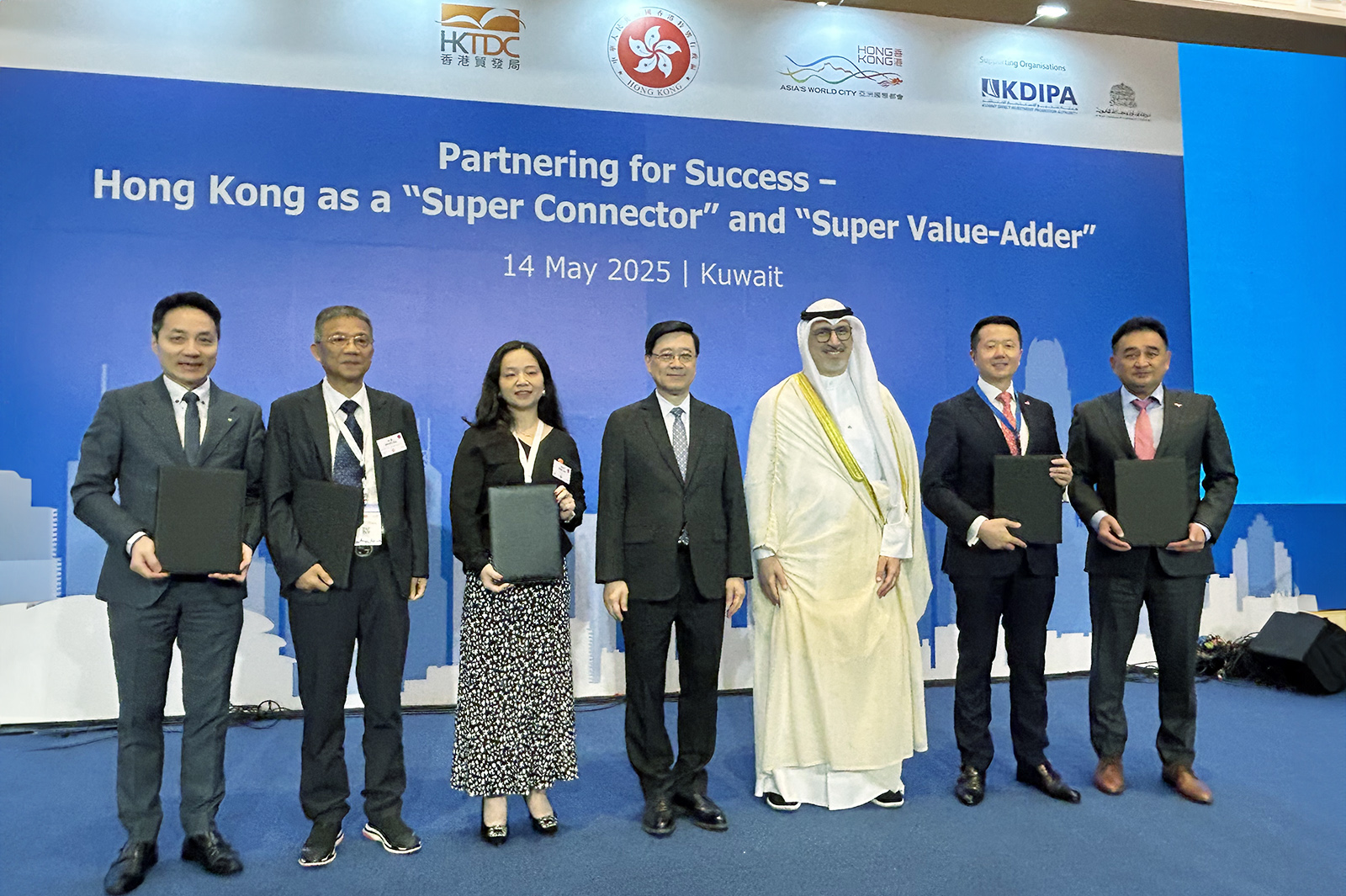
On 13 and 14 May, the CityUHK delegation joined a Middle East mission led by Mr John Lee, Chief Executive of the Hong Kong Special Administrative Region, organised by the Hong Kong Trade Development Council. As the only university represented in the delegation, CityUHK held in-depth discussions with officials from the Kuwaiti Ministry of Higher Education and representatives from Kuwait University to explore collaborative opportunities in education and research.
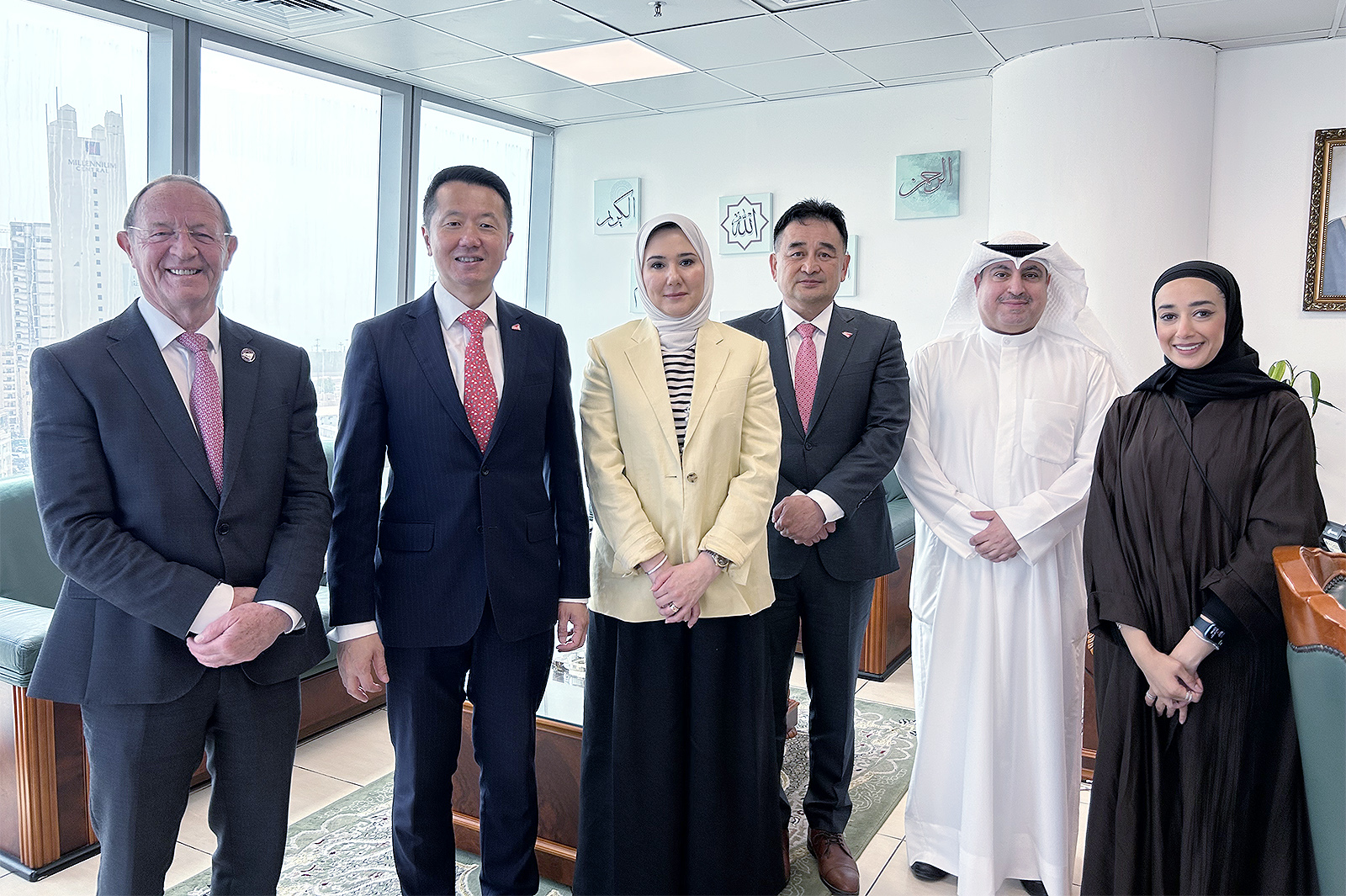
During the visit, Mr Ngai and the delegation met with Mrs Ghaida Abdullah, Assistant Undersecretary of Scholarships, Equivalency, and Cultural Relations Affairs at the Kuwaiti Ministry of Higher Education. The CityUHK team highlighted the University’s academic excellence, international outlook, and its designation by Times Higher Education as the “Most International University in the World” for two consecutive years (2024 and 2025). The meeting fostered a shared vision to deepen institutional ties, promote knowledge exchange, and support talent development between the two regions.
The delegation also engaged in discussions with Kuwait University representatives on initiatives such as faculty and student exchanges, joint research, and academic collaboration. Both institutions expressed strong interest in expanding partnerships that support innovation, mobility, and mutual academic enrichment.
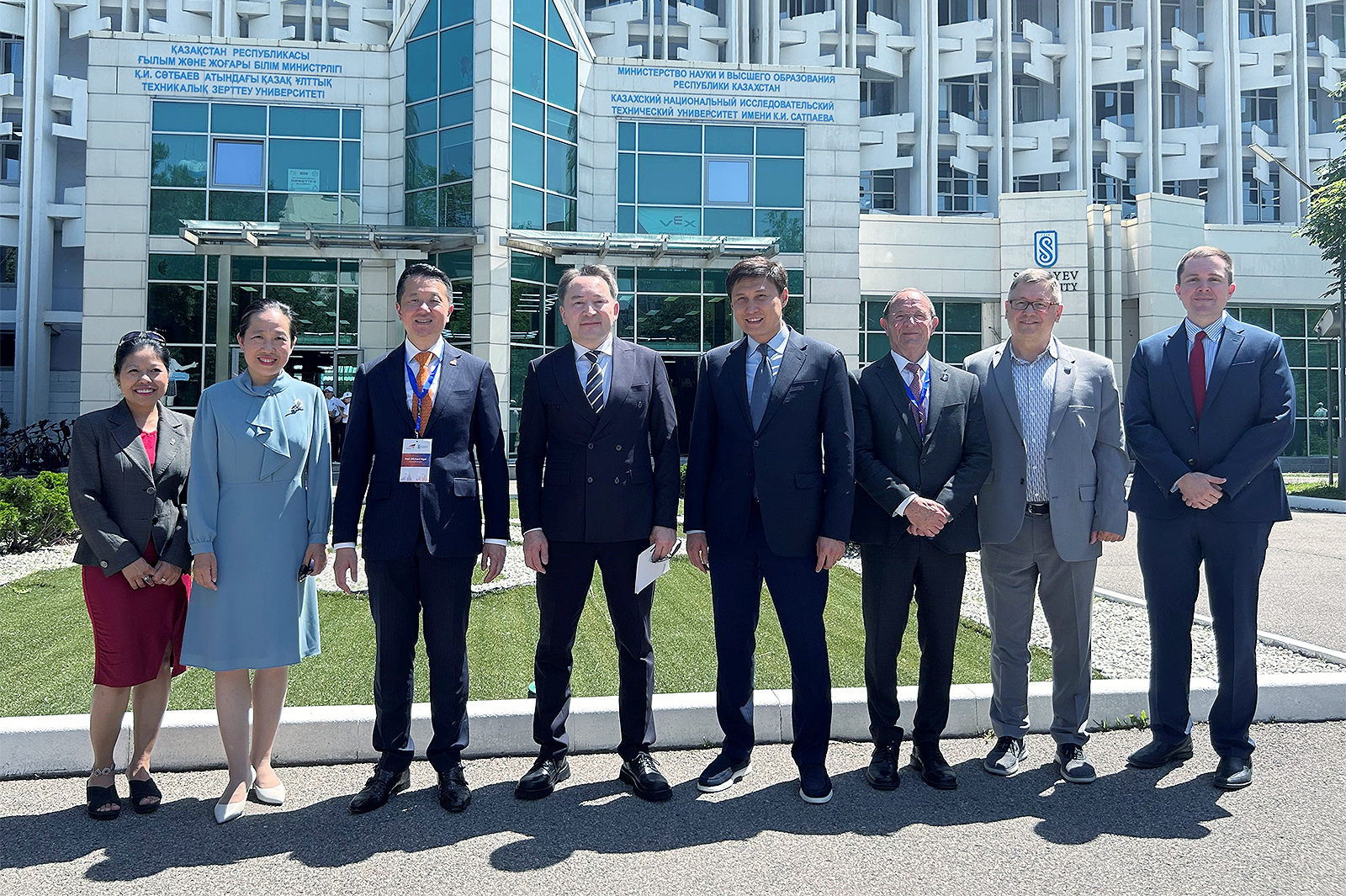
On 15 May, the delegation visited Kazakhstan, where Mr Ngai and Rector Meiram Begentayev of Satbayev University officiated the opening of the CityUHK Institute for Research and Innovation at Satbayev University. The inauguration was attended by Ms Jiang Wei, Consul General of the People’s Republic of China in Almaty, and Mr Azamat Kaldybekov, Deputy Akim of Almaty. This newly established institute will serve as a collaborative platform for interdisciplinary research, combining the scientific strengths of both universities to address global challenges.
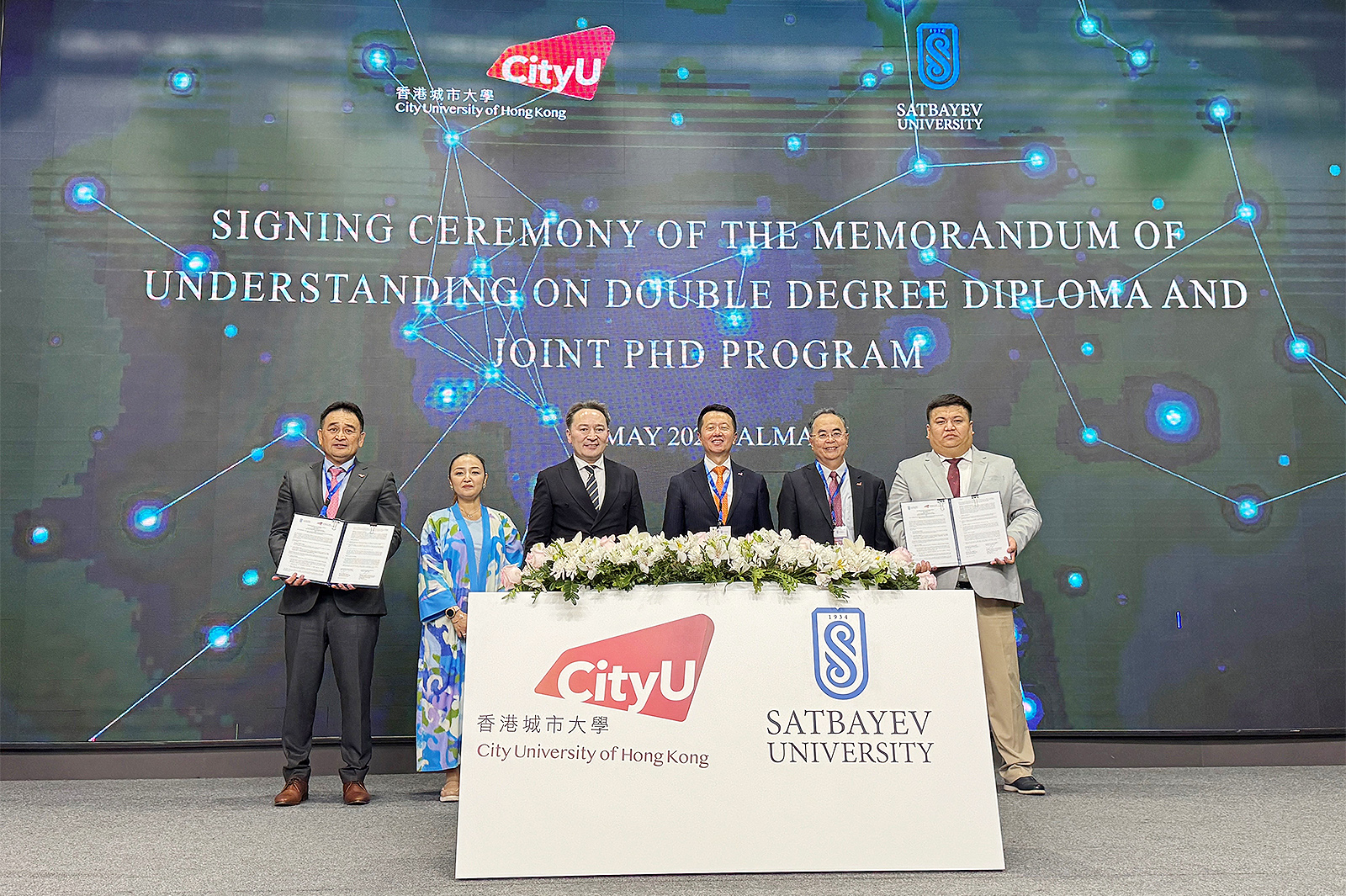
Further strengthening bilateral ties, a Memorandum of Understanding (MoU) was signed—witnessed by Ms Dinara Chsheglova, Vice Minister of Science and Higher Education of the Republic of Kazakhstan—to establish a dual PhD programme. Under this initiative, outstanding Kazakhstani students will receive scholarships from Kazakhstan government to pursue one year of coursework and research at Satbayev University, followed by three years at CityUHK. Graduates will earn PhD degrees from both institutions. The programme will initially focus on Computer Science, Civil Engineering, and Materials Science and Engineering, leveraging the academic strengths of both universities to cultivate globally minded research talent.
The CityUHK delegation to Kazakhstan also included Professor Jennifer Lin Fen, Associate Vice-President (Global Strategy); Professor Yue Chee Yoon, Dean of Graduate Studies; Professor Antoni Chan, Associate Dean (Research and Postgraduate) of the College of Computing; Ms Helen Lam, Director of the Chow Yei Ching School of Graduate Studies; as well as academic staff from the Departments of Architecture and Civil Engineering, Materials Science and Engineering, and Computer Science.
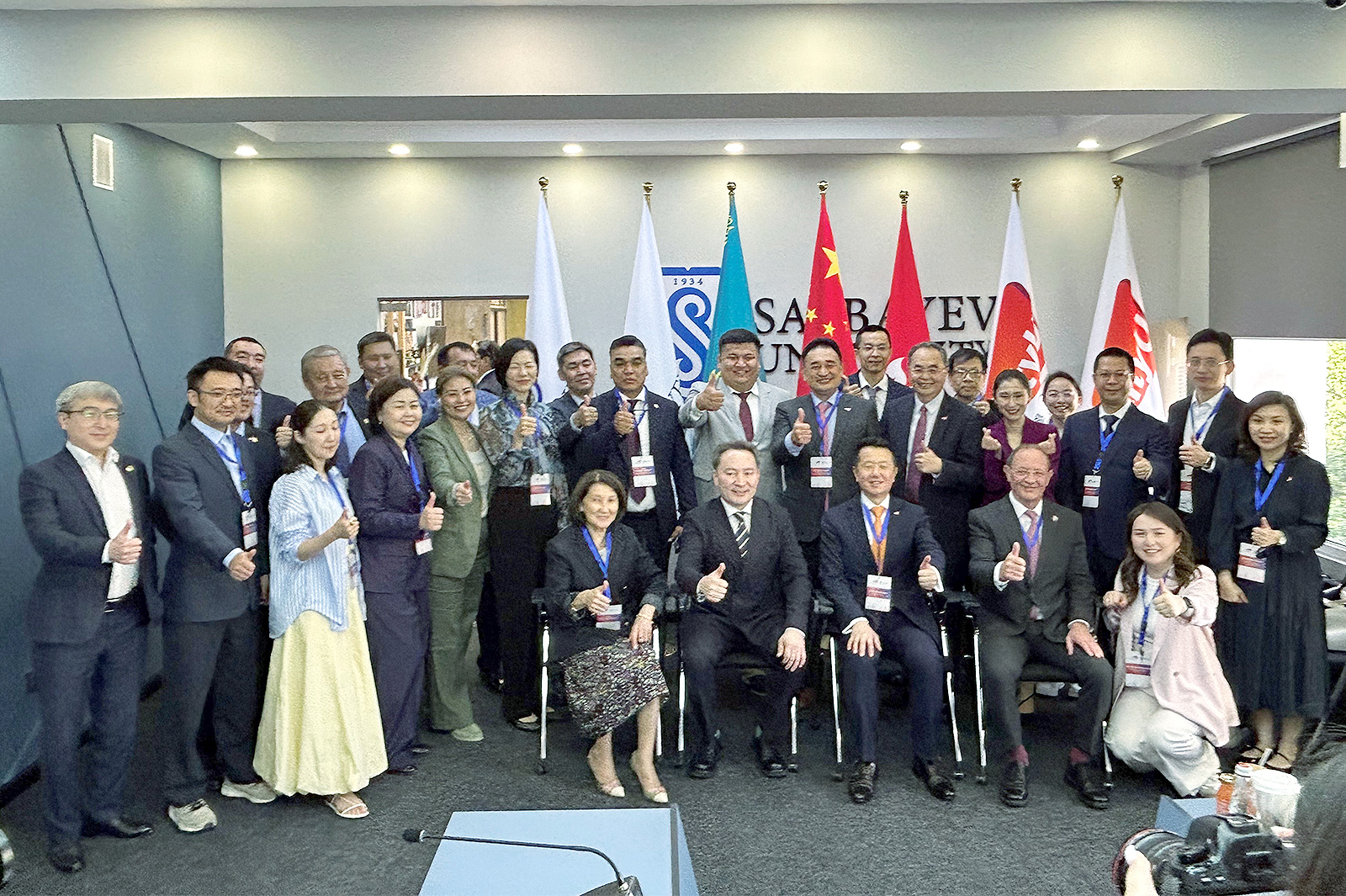
“CityUHK fully supports the Hong Kong SAR Government’s vision to establish Hong Kong as an international hub for higher education and to promote the ‘Study in Hong Kong’ brand,” said Mr Ngai. “This visit reflects our commitment to fostering global academic partnerships, particularly in the Middle East and Central Asia, and marks an important milestone in our participation in the Belt and Road Initiative. We will continue to seek innovative models of academic and research collaboration that contribute to regional development and offer mutually beneficial opportunities.”